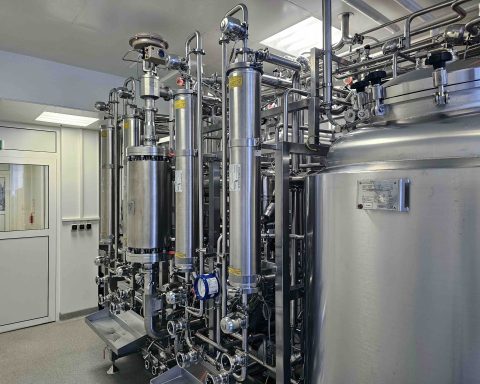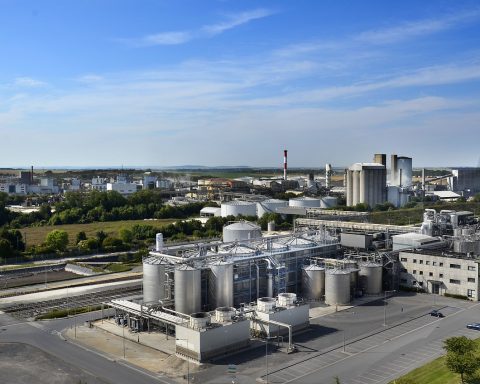The RegeneratOR Test Bed is an exciting game changer. The testing facility, located in North Carolina, provides supportive technology at no cost allowing companies to test and prove their cell-based products at various stages of development. The Test Bed utilizes Cytocentric principles, an innovative philosophy of putting the needs of the vulnerable cells front and center while growing and manipulating them in vitro.
Cytocentric cell manufacturing keeps the critical cell process parameters of temperature, CO2, and O2 at optimum physiologic levels over the entire production process, not just during incubation steps. By eliminating the fluctuations and suboptimal transients caused by all the typical exposures to air, Cytocentric manufacturing produces better cells and more consistent results. Any or all critical quality attributes can be improved, sometimes dramatically.
“Cells are very important to the whole process of regenerative medicine,” explains Dr. Anthony Atala, MD, Director of the Wake Forest Institute for Regenerative Medicine (WFIRM). “When you regenerate tissues and organs, you are dealing with two major ingredients: the most important are the cells that make up the functional component of the tissue and the many biomaterials we may use.”
The RegeneratOR Test Bed is supported by the collaborative efforts of WFIRM, the largest regenerative medicine institute in the world, and the RegenMed Development Organization (ReMDO), a non-profit headquartered in Winston-Salem, NC, with a mission to accelerate the discovery and translation of regenerative medicine therapies. With the launch of the Test Bed, along with an Innovation Accelerator to support regenerative medicine start-ups and established growth companies, and a Workforce Development program, WFIRM and ReMDO have established a regenerative medicine business landscape in Winston-Salem, NC, called the Regenerative Medicine Hub (RegenMed Hub). The RegenMed Hub is one of the fastest growing intersections of biotechnology innovation and business in the nation, making Winston-Salem and the region at large the go-to destination for innovation in regenerative medicine technology.
The RegeneratOR Test Bed is a game changer for companies to test and develop their products, because regenerative medicine all starts with the cell.
Gary Green, Chief Operating Officer for ReMDO
Currently, the Test Bed is the only available lab space where an entire cell production process can be put inside an enclosed system in which companies can test and measure the tangible benefit of Cytocentric cell manufacturing to their specific production process.
“If you can create a more conducive environment to cell isolation, expansion, and growth, you can create more efficacious cells, both in terms of the number of cells produced and the efficacy of the cells. The value all goes back to the cell and the ability to create a positive environment that makes for more regeneration and better cells,” says Green.
The Test Bed is a free service. “Startups, emerging companies, and established companies with emerging products in the regenerative medicine space are able to take advantage of the facility at no cost to them, so that they can build their prototypes, in terms of manufacturing, and reduce product development costs dramatically,” says Atala.
State-of-the-Art RegenMed Technologies
Companies like New York-based BioSpherix, Ltd. provide technologies and resources for firms in the RegenMed Hub. The company has focused on the design and manufacture of Cytocentric® Cell Incubation, Processing, and Production Systems, a unique equipment platform that controls critical cell process parameters at physiologic levels more thoroughly than conventional approaches.
BioSpherix Medical is the exclusive supplier of the only Cytocentric® isolator called the Xvivo System® model X2, used by cell and gene therapy developers globally to economically produce the most potent cells. With the Xvivo System, any process, any equipment, any automation –all the top technology from other manufacturers – can be incorporated into the system.
The modularity of the Xvivo System allows it to be flexible enough to meet the requirements of various therapies and scalability allows it to be redesigned, reconfigured, and expanded as the needs of the end user shift or change.
“The Test Bed is essentially a collection of state-of-the-art technologies that assist companies that want to do prototyping and advance their manufacturing process for a regenmed technology or product,” explains Josh Hunsberger, PhD, and Chief Technology Officer of ReMDO. “BioSpherix is the cornerstone technology. They have built a Cytocentric testing facility, an end-to-end manufacturing system that is the only place in the word companies can come in and have access to the equipment.”
The Xvivo System is flexible enough to accommodate almost any manufacturing process, “so companies can come in from around the world and test it out and see how well their manufacturing processes perform,” adds Hunsberger.
The BioSpherix system takes conventional practices, in place for half a century, and turns them around, putting the focus on optimized cell generation. Because it is a closed system, it can be operated in ISO-8 environment and does not require a Class A or B cleanroom environment.
This stands in contrast to current Good Manufacturing Practices (GMP), which are almost entirely based on utilizing cleanrooms. However, for best viability and potency, cells need full-time optimization of all critical parameters or suffer from degradation of genotypic and phenotypic integrity, as well as variability in cell populations. Even with a high level of control, environmental variations occur in cleanrooms during processing. Cleanrooms may have controls over temperature, dust, and particulates, but not over the level of O2 or CO2 in the air. When the product is put in and taken out of a safety hood. the samples can be exposed to open air, compromising the quality control.
According to Green, “The Xvivo System provided a real cost-efficient alternative to a cleanroom environment, particularly at the testing and product development level.”
Dr. Atala agrees. “Cost is extremely important because these technologies can get very expensive to develop. Between the media that is used to grow the cells, the labor involved, the maintenance of the facility, the process development, the quality assurance, and quality control features – all these can get very expensive. By having a unit that is compact, self-contained, with all the air quality and specifications needed that are required by the FDA, you can decrease the overall costs.”
“Lower cost of production leads to lower cost of the product, which means that more patients will be able to benefit from these technologies,” he adds.
Atala says The RegeneratOR Test Bed will strengthen the already extensive “ecosystem” of resources to advance regenerative medicine technologies in the region. “The RegenMed Hub is an intersection of businesses, manufacturing companies, societies, and foundations that support the advancement of regenerative medicine, with the ultimate goal of accelerating these technologies to patients.”







